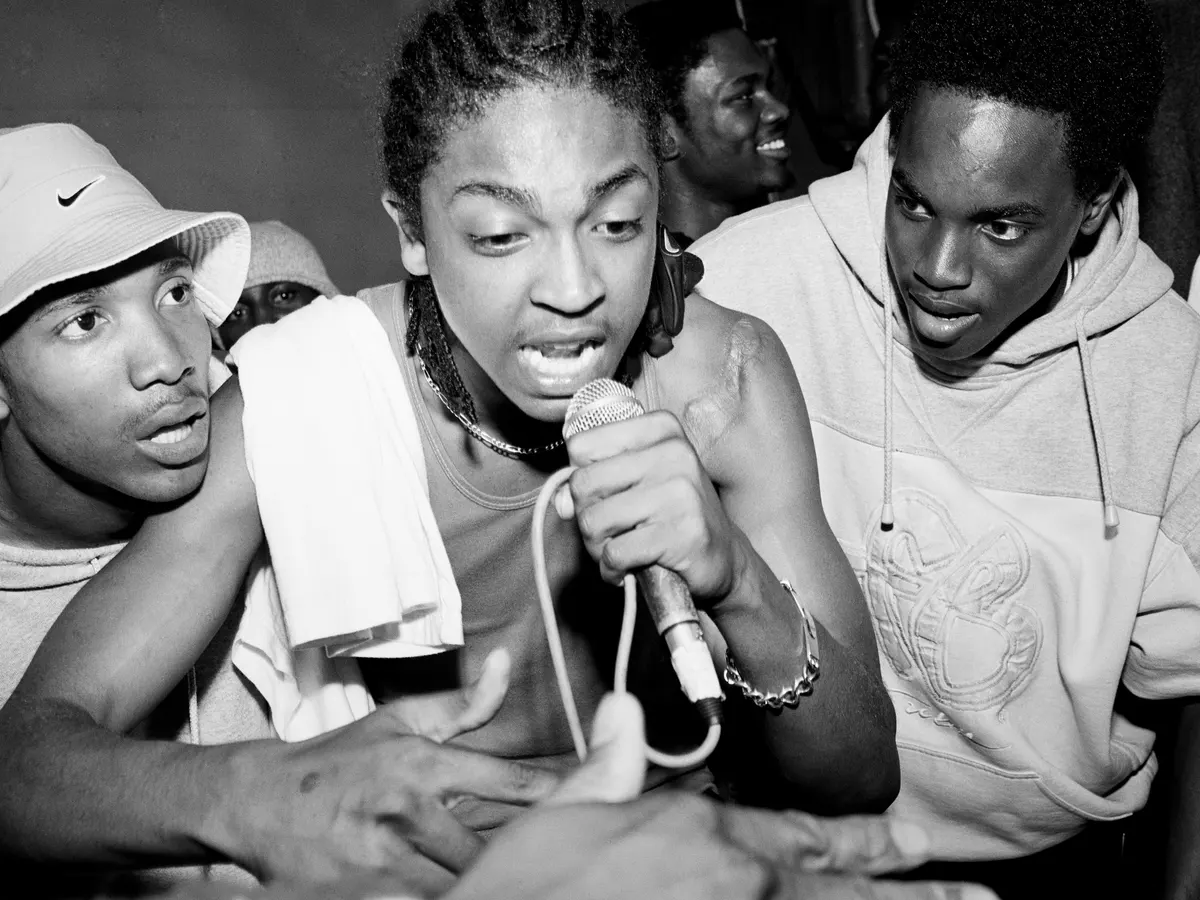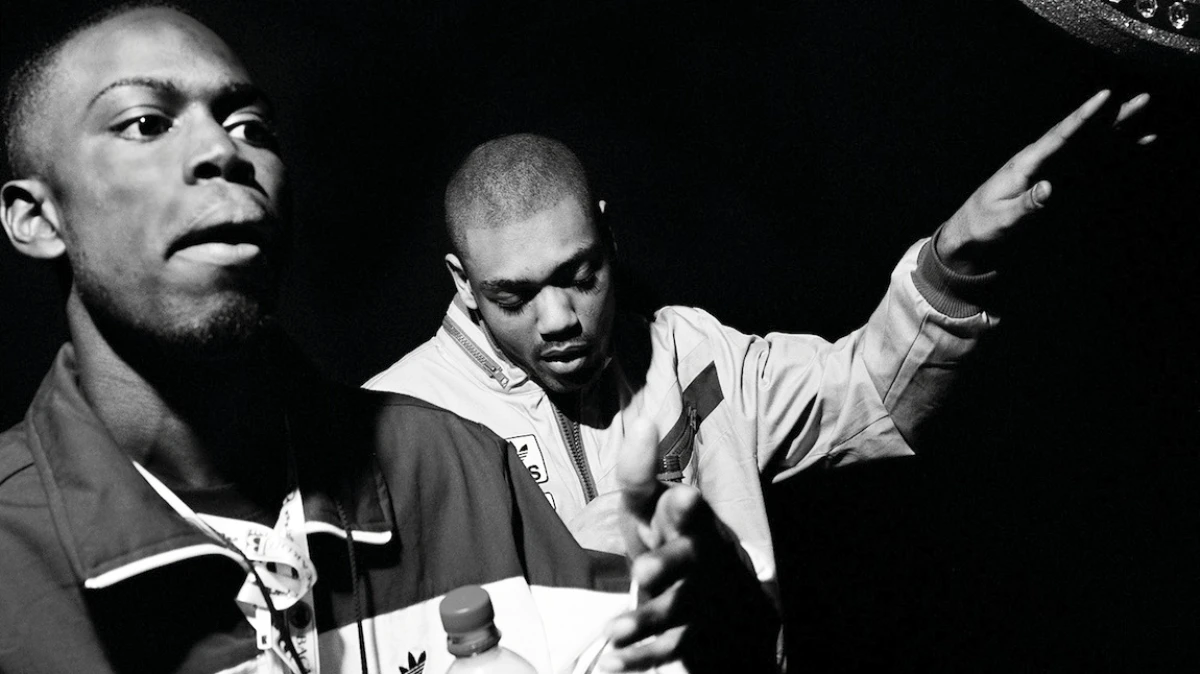Director Ewen Spencer takes you on a deep dive into the history of grime, with unconventional chapters that cleverly segment and propel the documentary forward; whether you’ve just stumbled across the Stormzy - Wiley ‘beef’ or know the entire discography of Boy Better Know, even if you're more on the garage side of things - this documentary will enlighten you to one of the most astounding narratives of a community's triumph. Driven out of a need to be heard.
Screening on the 20th of March at Melkweg, tickets available here.
From reggae to jungle to drum & bass, Black British music has always been bubbling under the surface of the popular British music scene, occasionally coming up for air to appear and appeal to audiences. 8 Bar is a documentary that intimately depicts the progression of the British music scene's biggest forefronter: Grime. Showing how this genre was able to break the cyclical containment of Black British music as a sub-culture.
Although it was never the primary goal to be the most popular genre on the planet or to make millions of pounds - the required power needed to break the met resistance, was one that inevitably propelled grime to the top of the game.
Director Ewen Spencer is known for his pivotal role in ‘documenting Britishness’, and is able to relate to the story through a lifetime of capturing it. With characters entitled ‘not a drug dealer’, he perfectly encapsulates the morbidly hilarious sentiment of the story.
‘The first thing I wondered when I saw them (his photographs) was how he didn't get beaten up for snapping such intimate moments of some pretty certified-looking badmen.’
- Mike Skinner (The Streets)
This invasive attitude portrayed in his photography is a continued theme in the film, as a spectator you are taken along with Spencer, creeping in on classified freestyle battles and slotting into the center of garage dance floors. The transfer of energy through Spencer's lens is something that makes him a revered chronicler of the myths and legends that make up these echoes of the British music scene.
The thread of sound system culture is omnipresent throughout this evolution story, enlightening us to the paramount importance of grime’s predecessors and highlighting the fluidity of these genres. Grime is shown to be a continuation of garage and the title, an illusionary concept coined simply by news tabloids. Encapsulating the ability of the community to redefine their narrative.
The culture not only permeated through the sound, but the mindset as well. One of the biggest takeaways from the documentary has to be its strong ‘DIY’ approach, as Troy A Plus Miller, puts it: “Being children of the Windrush generation meant not waiting for someone. You gotta get out there and do it yourself.” Either you did it yourself, or no one heard you. This is shown through many parts of the documentary but has to be epitomized through the phenomenon that is: Pirate radio.

Pirate radio acted as an extension of their suppressed voice and the commitment towards this type of broadcasting was unfathomable. Explicitly demonstrated in scenes where we see a man risk his life climbing through lift shafts to set up transmitters for Rinse FM. Or are shown the vast and intricate components that combine to make a transmitter by Geenes (founder of Rinse FM), showcasing the beautiful grit of the early 2000’s, before the ages of social media, where MCs had to develop a signature vocal style simply because nobody knew what they looked like.
In addition to this resilient mindset and demeanor, another unfortunate legacy inherited from their parents was the complex relationship with law enforcement and authority figures. We see this outdated relationship persisting and unchanged as the evolution of Grime continues. With scenes of Ofcom mercilessly shutting down stations playing grime, raves repeatedly getting shut down, or (quite iconically) Slimzee receiving the first ever asbo (anti-social behavior order).
The documentary is a masterclass in showcasing the emergence of subcultures into cultures, through unyielding determination - we see the youthful brazenness of icons such as Kano, Dizzee Rascal, D-Double-E, Skepta (to name a few), and the resilience that was born out of pure desire to express yourself.
Shown like never before, we see grime before it was so.
Steppin' Into Tomorrow stands with artists & labels and encourages listeners to support them by buying their music directly from Bandcamp. If you've enjoyed this article, please consider subscribing to our monthly newsletter to stay in the loop.












